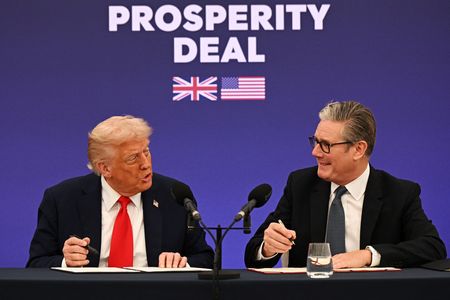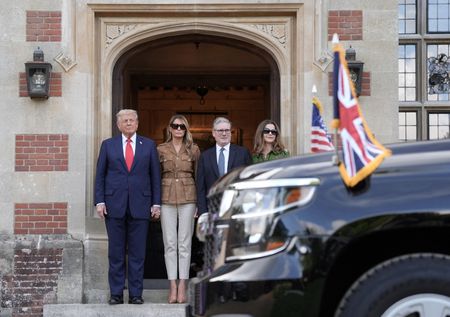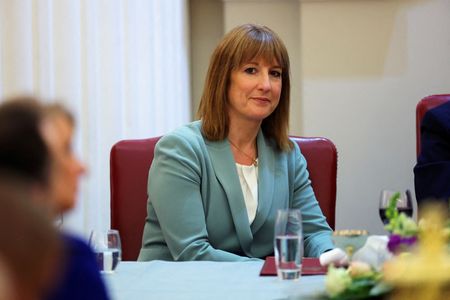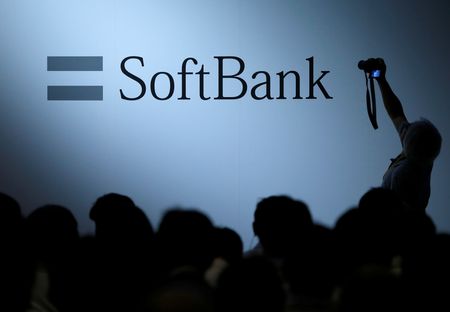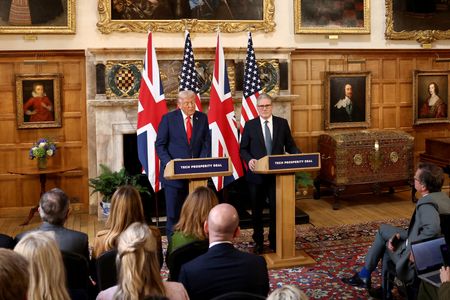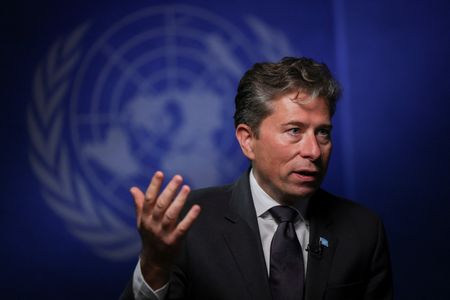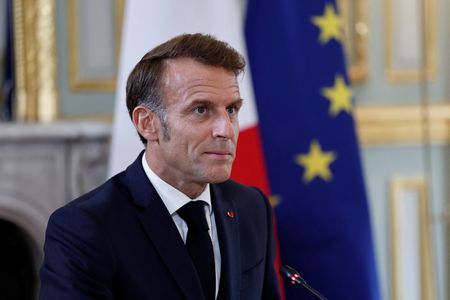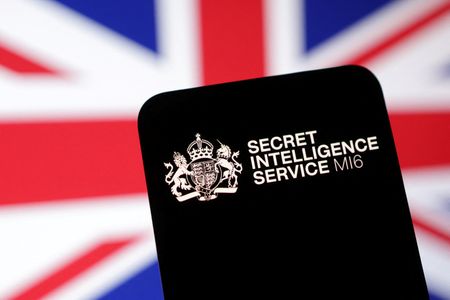By Andrew MacAskill, Paul Sandle and Muvija M
LONDON (Reuters) -For Keir Starmer, securing record levels of U.S. investment into Britain has validated his offer of an unprecedented second state visit to Donald Trump, a high-risk gamble that was designed to keep the unpredictable president on side.
Trump celebrated his historic visit to Britain by announcing 150 billion pounds ($203 billion) of corporate investment in the UK’s technology, finance and energy sectors.
Public opinion was split over whether Starmer was right to cosy up to Trump, but he managed to avoid any public blow-up and the deals agreed gave him a much needed boost after some of the toughest weeks of his premiership.
While state visits hosted by Britain’s royal family have in the past been used to announce trade deals or cultural partnerships, Trump, the most transactional of presidents, arrived with billionaires and business leaders.
TRUMP WANTS UK ALIGNED WITH US IN AI RACE
During the visit the two governments announced a raft of U.S. corporate investments into Britain, with private equity group Blackstone pledging 100 billion pounds over 10 years and Microsoft making a 22 billion pound commitment.
Trump has said he wants the U.S. to win the global AI race, and with China the only real challenger in the space, Britain has chosen to align with its ally to secure the building of data centres and supercomputers.
Trump and some tech CEOs, including Microsoft’s Satya Nadella, were explicit in their thinking, saying it was important that Britain rely on the United States.
“We’re committed to ensuring that the UK has a secure and reliable supply of the best AI, hardware and software on Earth, and we supply that,” Trump told a news conference.
The investment is intended to help combine U.S. strengths in building AI infrastructure, capabilities and capital with British innovation and creativity coming out of its universities, start-ups and major companies.
But not everyone endorsed the deal, with some analysts and lawyers arguing that it would leave Britain as little more than an outpost of Silicon Valley.
Nick Clegg, a former British deputy prime minister who was later policy chief at Meta, said the deal represented Britain “holding on to Uncle Sam’s coattails”.
Alex Kirkhope, partner at law firm Shoosmiths, agreed, saying if Britain’s AI was built on U.S. infrastructure, software and data centres then “clearly our leverage in terms of the political side of things is naturally compromised.”
Moving too close to the United States also risks limiting Britain’s ability to export into the European Union, by far its biggest trade partner, and key for economic growth.
And critics of Starmer’s approach argue that despite Trump’s apparent sense of goodwill towards Britain – the birthplace of his mother – the country remains at his mercy.
“The UK has made the best of a bad situation but the actual outcome depends on the whims of Trump, not UK tactics or strategy,” said Peter Holmes at the UK Trade Policy Observatory.
STARMER STRIKES SOLID RELATIONSHIP WITH TRUMP
Unlike some other world leaders, Starmer, a liberal technocrat and former human rights lawyer, has proved to be adept at handling Trump, flattering him in public, remaining polite, and using his trump card of a royal invite.
David Dunn, a professor in international politics at the University of Birmingham, said Trump’s willingness to bring senior members of his cabinet and leading corporate bosses to Britain provided huge opportunities.
Other countries, including Brazil and India, had been hit by punishing tariffs because they had not shown enough “fealty”, he said.
“Trump is a mercurial figure who acts like a medieval king,” said Dunn. “Britain through quiet, careful diplomacy has managed to get reasonably favourable treatment.”
Britain was the first country to secure a reduction of Trump’s global tariffs when the two countries announced an economic deal in May. Lower levies on cars and aircraft parts were vital for companies like Jaguar Land Rover.
But Starmer’s influence has its limitations. While the UK’s steel sector faces 25% tariffs to sell into the U.S., versus 50% for other countries, Starmer did not succeed in bringing them lower during the trip.
The two leaders also agreed to disagree on the recognition of a Palestinian state, and there was little movement on Trump’s approach to Russia.
But the two men left on good terms, with Trump saying the U.S. and Britain would always be united.
“And I just want to thank you, Mr Prime Minister, for the great job I think you’re doing,” he added.
($1 = 0.7383 pounds)
(Writing by Kate Holton; additional reporting by Alistair Smout; Editing by Rosalba O’Brien)

